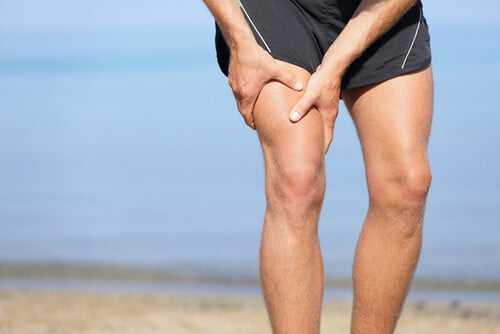

Environment
How Pain Management Hurts the Environment, and What You Can Do to Help
When you’re in pain, your first impulse might be to go to the closest drug store, buy a bottle of pain relievers and pop a pill in your mouth. It probably wouldn’t occur to you that this sequence of events could adversely affect the environment – but the environmental cost of pain relievers is significantly higher than you might expect.
Let’s talk about how pain relievers can cause environmental problems. Let’s also discuss 3 things you can do to be a part of the solution.
Painkiller Residues Are Polluting Streams, Rivers and Waterways
The process of manufacturing painkillers is not inherently eco-friendly. It requires massive amounts of infrastructure. It consumes sizable amounts of raw materials and energy, and it produces unacceptable amounts of toxic waste.
This toxic waste is finding its way into streams, rivers and waterways. It’s been discovered in diverse locations ranging from groundwater to the sewage sludge destined for use by farmers on their farmland. When researchers in the USA tested 139 streams in 30 states, they discovered that residues from painkillers were present in 80 percent of the waterways they tested. In particular, they found measurable amounts of acetaminophen, codeine and ibuprofen.
Wastewater treatment does not destroy pharmaceutical residues – so once these residues are introduced into the water cycle, they tend to hang around in the water, contaminating it indefinitely.
This is a widespread problem with no easy solutions, but there are things you can do to help:
- Use Chemical-Free Natural Remedies for Pain Relief
There are many effective, chemical-free pain relievers you can use instead of the toxic, polluting chemical analgesics that you find in drug stores:
- Organic CBD Nugs can help to relieve body aches and pains.
- Ginger is an effective way to deal with a broad variety of pains and conditions; use it for treating arthritis pain, nausea, and sore muscles.
- Relieve toothache pains and other pains using clove oil.
These natural remedies are all environmentally friendly, non-polluting and sustainable.
- Use Massage or Physical Therapy Instead of Medications
Massage and physical therapy can both be effective ways to manage pain. Both of these options avoid the use of harmful chemicals, which helps to keep toxic pharmaceutical residues out of the environment.
- Be Mindful of How You Dispose of Unneeded Pain Medications
If you have expired medications, you’ll need to dispose of them – but that can be tricky. In the United States, experts at the FDA recommend finding and making use of a controlled substance public disposal location. This is the ideal way to ensure your unwanted medications do not harm other people or the environment.
We cannot enthusiastically endorse the other methods they recommend, one of which is flushing the medications down the toilet and the other of which is throwing them in the trash. Both of these actions are likely to harm the environment, and they should be avoided if possible.
Flushing the medications down the toilet ensures that they’ll end up in the domestic sewage system. The wastewater-treatment processes that are typically in use in this system are unable to remove pharmaceutical residues from the water, so any medications disposed of in this way will usually end up polluting the environment, harming wildlife in the process.
Throwing medications in the trash ensures that they will end up in a landfill. Once there, rainwater will typically dissolve them, frequently sending the residues into the local groundwater where they can harm people, animals, plant life and soil.
Now that you’re aware of the environmental problems associated with pain medications, you’re better positioned to make environmentally responsible choices for managing your pain.


 Environment12 months ago
Environment12 months agoAre Polymer Banknotes: an Eco-Friendly Trend or a Groundswell?

 Features11 months ago
Features11 months agoEco-Friendly Cryptocurrencies: Sustainable Investment Choices

 Features12 months ago
Features12 months agoEco-Friendly Crypto Traders Must Find the Right Exchange

 Energy11 months ago
Energy11 months agoThe Growing Role of Solar Panels in Ireland’s Energy Future
















